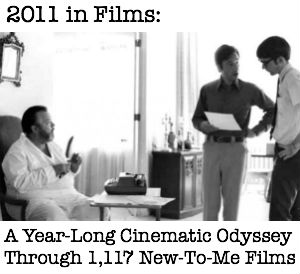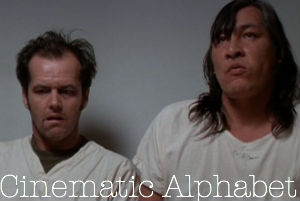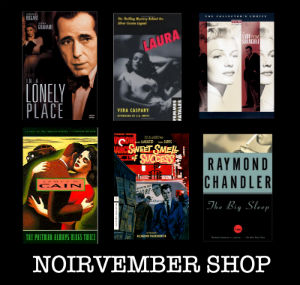Oscar Vault Monday – The Heiress, 1949 (dir. William Wyler)
The Heiress is a kind of movie that was very popular in classic era Hollywood and isn’t really made that often anymore. I mean, we get lots of period pieces ever year, but they often feel stuffy and/or Oscar-baity. What made the period dramas of this era so great is they feel modern, as in they felt modern at the time. And in doing so they still feel modern today. The Heiress or Jezebel or The Little Foxes feel as modern as any of their non-period contemporaries. I wish Hollywood could figure out how to do that again. I think Jane Campion came pretty close with The Piano. The Heiress was nominated for eight Academy Awards, winning four: Best B&W Art Direction-Set Decoration (won), Best B&W Costume Design (won), Best Score (won), Best B&W Cinematography, Best Supporting Actor Ralph Richardson, Best Actress Olivia de Havilland (won), Best Director William Wyler and Best Picture. The other films up for Best Picture that year were Battleground, A Letter to Three Wives, Twelve O’Clock High and winner All The King’s Men.
William Wyler is one of the all-time great directors. In his 45-year-long career thirteen of his films were nominated for Best Picture (Dodsworth, Dead End, Jezebel, Wuthering Heights, The Letter, The Little Foxes, Mrs. Miniver, The Best Years of Our Lives, The Heiress, Roman Holiday, Friendly Persuasion, Ben-Hur and Funny Girl); three of them won the prize. He was also nominated for Best Director twelve times (twice for films not up for Best Picture: Detective Story and The Collector), winning three times for Mrs. Miniver, The Best Years of Our Lives and Ben-Hur. Wyler is second only to John Ford for most Best Director wins and is tied with Frank Capra, who also won three times. He lost Best Director in 1949 to Joseph L. Mankiewicz, who won back-to-back Best Director Oscars for 1949’s A Letter to Three Wives and 1950’s All About Eve (John Ford is the only other director to win back-to-back, for 1940’s The Grapes of Wrath and 1941’s How Green Was My Valley).
Like her director, Olivia de Havilland is one of the greats from this or any era. Her career spanned over fifty years and she was nominated for five Academy Awards, winning twice: Best Supporting Actress Gone With The Wind, Best Actress Hold Back The Dawn, To Each His Own (won), The Snake Pit and The Heiress (won). As it happens, Miss de Havilland is still alive and kicking – she’s 95! As is her sister, Joan Fontaine (94), who is the only person to win an Academy Award for a film directed by Alfred Hitchcock (she won for 1941’s Suspicion). The transformation de Havilland’s character Catherine goes through during the film is so amazing. She begins the film very sheltered, naive and hopeful and as the film progresses she simultaneously becomes both bitter and more self-confident. It’s truly an awe-inspiring performance.
Montgomery Clift is one of my favorite actors ever. He is so unbelievably good in every movie he’s ever made. I’m not really sure I could pick one favorite role for him, he’s just that good. In The Heiress, Clift is perhaps at his most charming, but also at his most devious as golddigger Morris Townsend. He’s a total jerk in this film, but he’s so damn charming you see why de Havilland’s Catherine falls for him. Clift’s career was marked by tragedy – car accident during the filming of Raintree County altered him both physically and mentally and he died at the age of 46, with only 17 films to his name. Regardless, Clift is remembered as one of the great actors of his (or any) generation and was nominated for four Academy Awards, though he never won: Best Actor: The Search, A Place In The Sun, From Here To Eternity, Best Supporting Actor: Judgement at Nuremberg.
Ralph Richardson is great as Catherine’s seemingly emotionless father Dr. Austin Sloper. It’s hard to tell throughout the film whether his actions really are to protect his daughter or to protect his wealth; that’s the genius of his performance. In the end Catherine winds up more like him than he probably ever could have imagined. Richardson’s career also spanned nearly fifty years and ranged from lead roles (I love him in Carol Reed’s 1948 noir The Fallen Idol) and supporting roles. He was nominated for Best Supporting Actor twice, once for The Heiress and a second time, posthumously, for his work in 1984’s Greystoke: The Legend of Tarzan, Lord of the Apes.
When I think of Miriam Hopkins the first thing that pops into my mind is her gorgeous legs as seen in 1931’s Dr. Jekyll and Mr. Hyde, but that’s neither here nor there. Although many of Hopkins’s most famous performances were in her films from the 1930s, she was active in Hollywood until her death in 1972. She was nominated for Best Actress for Rouben Mamoulian’s 1935 film Becky Sharp, an adaptation of William Makepeace Thackeray’s Vanity Fair. In The Heiress Hopkins plays Lavinia Penniman, Dr. Sloper’s sister who tries her best to be a guide for Catherine, but gets tricked by Morris’s charm even more than the girl. It’s a great performance in a film that’s filled with nothing but great performances.
Lastly, I just want to share this haunting shot. Truly one of the greatest endings to a film ever.
Don’t forget to check out our Oscar Vault Monday shop, where you can purchase this and many other great films.
Posted on November 14, 2011, in Oscar Vault Monday and tagged 1949, Miriam Hopkins, Montgomery Clift, Olivia de Havilland, Ralph Richardson, The Heiress, William Wyler. Bookmark the permalink. 2 Comments.























It’s been decades since I have seen this and I agree with you about how those movies about women in earlier times seemed so modern in the issues that were being addressed. Nice.
I saw this for the first time in February and it blew me away. BLEW ME AWAY. On my blog I proclaimed Olivia de Havilland as having given the greatest female performance I’ve ever seen. Which I suppose is hyperbole, but not really.